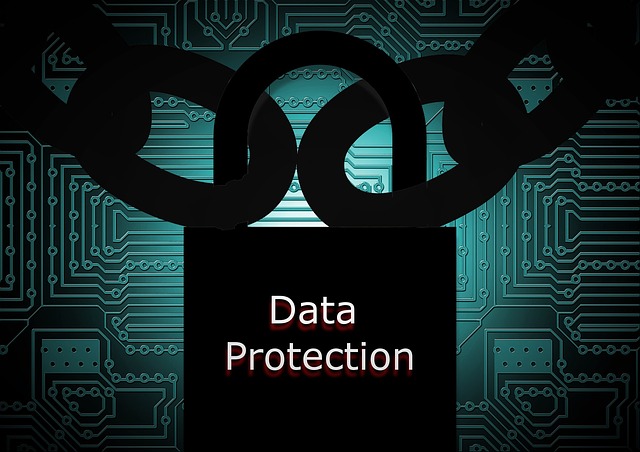This post will talk about VPN chaining.
In today's digital landscape, online privacy and security are paramount. Virtual Private Networks (VPNs) have become a popular tool for encrypting your internet traffic and masking your IP address.
But what if you crave an extra layer of security?
Enter VPN chaining, the concept of utilizing multiple VPNs simultaneously.
This article delves into the world of VPN chaining, exploring its functionalities, advantages, and potential drawbacks.

Table of Contents
How Does a VPN Work?
Before diving into chaining, let's revisit the fundamentals of a single VPN. Connecting to a VPN establishes a secure tunnel between your device and a remote server operated by the VPN provider.
Your internet traffic travels through this encrypted tunnel, making it unreadable by anyone intercepting it.
Additionally, the VPN server masks your IP address, replacing it with one from its pool. This hides your location and online activity from websites, prying eyes, and potential trackers.
READ ALSO: Best VPN For 2023: Top Picks Reviewed by Our VPN Experts
The Allure of Double Encryption: Advantages of VPN Chaining
VPN chaining involves routing your internet traffic through two or more VPN servers consecutively. This creates a multi-layered encryption process, potentially enhancing security:
- Double Encryption: Your data is encrypted twice, offering a theoretically more robust shield against potential breaches.
- Enhanced Anonymity: By routing your traffic through multiple servers, you obscure your origin further, making it even more difficult to trace your online activity.
- Jurisdictional Benefits: By connecting through VPN servers in different countries with strong privacy laws, you can potentially avoid data retention policies or government surveillance concerns in specific regions.
Beyond Double Encryption: Additional Benefits of VPN Chaining
While double encryption is the primary focus, VPN chaining offers other potential advantages:
- Bypassing Geo-restrictions: If the first VPN struggles to unblock a specific geo-restricted website, chaining with another server in a different location might provide access.
- Load Balancing: Distributing your traffic across multiple VPN servers can improve overall connection speeds if one server experiences congestion.
The Other Side of the Coin: Disadvantages of VPN Chaining
While VPN chaining might sound appealing, it's not without drawbacks:
- Decreased Speed: Encrypting your data twice and routing it through multiple servers can significantly decrease internet connection speed. This can be particularly frustrating for activities like streaming or online gaming.
- Increased Complexity: Setting up and managing multiple VPN connections simultaneously can be complex for non-technical users.
- Compatibility Issues: Not all VPN providers support or condone VPN chaining. Ensure your chosen VPNs allow this configuration before attempting it.
- Potential Security Risks: Adding another server introduces another possible point of failure. Your privacy could be compromised if one VPN in the chain leaks data.
- Diminishing Returns: While double encryption might sound better, the added security benefit diminishes as you chain more VPNs. The complexity and performance drawbacks outweigh the minimal security gain.
READ ALSO: How to Use a VPN to Protect Your Online Privacy
Can You Use Multiple VPNs at Once?
Technically, you can use multiple VPNs at once, which is the concept behind VPN chaining. However, it's generally not recommended for most users due to several drawbacks:
- Decreased Speed: Encrypting your data twice and routing it through multiple servers can significantly slow down your internet connection. This can be particularly frustrating for activities like streaming or online gaming.
- Increased Complexity: Setting up and managing multiple VPN connections simultaneously can be complex for non-technical users.
- Compatibility Issues: Not all VPN providers support or condone VPN chaining. Ensure your chosen VPNs allow this configuration before attempting it.
- Potential Security Risks: Adding another server introduces another possible point of failure. Your privacy could be compromised if one VPN in the chain leaks data.
- Diminishing Returns: While double encryption might sound better, the added security benefit diminishes as you chain more VPNs. The complexity and performance drawbacks outweigh the minimal security gain.
Alternatives to Consider
- Single High-Quality VPN: A single, reputable VPN with robust security features is sufficient for ensuring online privacy for most users.
- VPN with Multi-Hop: Some VPNs offer a built-in “multi-hop” feature that routes your traffic through multiple servers within their network, offering additional security without the complexity of managing separate VPN connections.
- Focus on Strong Encryption: Ensure your chosen VPN utilizes robust encryption protocols like OpenVPN or IKEv2/IPsec for optimal data protection.
- Safe Browsing Habits: Complement your VPN usage with safe browsing practices like avoiding suspicious websites, using strong passwords, and keeping your software updated.
In conclusion, while technically possible, VPN chaining is not ideal for most users. Consider the alternatives mentioned above to achieve a good balance between online security and a smooth user experience.
Multiple VPNs, Is It Worth It?
In most cases, using a single, reputable VPN with robust security features is sufficient for ensuring online privacy. However, there can be specific scenarios where VPN chaining might be considered:
- Journalists or Activists in High-Risk Situations: For individuals operating in countries with severe restrictions on online freedom, VPN chaining might offer an extra layer of protection (though other security measures are also crucial).
- Highly Sensitive Data Handling: If you work with exceptionally confidential information, chaining could be an option, but weigh the security benefits against the performance drawbacks.
VPN Chaining: Frequently Asked Questions
What is VPN Chaining?
VPN chaining refers to simultaneously connecting to multiple Virtual Private Networks (VPNs). This creates a multi-layered encryption process, consecutively routing your internet traffic through two or more VPN servers.
Can you chain a VPN?
Technically, yes, you can chain multiple VPNs. However, it's not generally recommended due to its drawbacks.
How do you use a VPN chain?
Setting up a VPN chain involves configuring two or more separate VPN connections on your device. This can be complex and requires ensuring both VPN providers allow chaining.
Can You Use Multiple VPNs At Once?
You can use multiple VPNs simultaneously, but it's not ideal. The additional encryption and server hops significantly decrease internet speed and introduce potential security risks.
READ ALSO: Ways To Prevent Supply Chain Attacks
What happens if you use 2 VPNS?
Two VPNs can theoretically offer double encryption and potentially mask your location further. However, the drawbacks often outweigh the benefits:
- Slower Speeds: Encryption and server hops significantly slow down your internet connection.
- Increased Complexity: Managing multiple VPN connections can be challenging.
- Compatibility Issues: Not all VPNs support chaining.
- Security Risks: Another server adds a potential point of failure for data leaks.
Is using two VPNs Safe and better?
In most cases, using two VPNs is not safer or better. A single, high-quality VPN with solid encryption offers sufficient protection for most users.
How many VPN connections can you have?
The number of VPN connections you can have depends on the specific VPN provider. Some offer only one connection per subscription, while others allow multiple connections simultaneously (on different devices).
However, even with providers allowing multiple connections, VPN chaining is generally not recommended due to the reasons mentioned above.
The Bottom Line
A single high-quality VPN is generally the most practical solution for the average user prioritizing online privacy and security. VPN chaining can introduce complexity and performance issues that outweigh the minimal security gains.
However, chaining might be a consideration for particular situations requiring maximum anonymity.
Important Considerations:
- Before attempting VPN chaining, ensure your chosen VPN providers allow this practice.
- Research and invest in reputable VPNs with robust encryption protocols and a proven track record of user privacy.
- Be aware of the significant performance impact VPN chaining can have on your internet speed.
Alternatives to VPN Chaining
If enhanced security is your primary concern, consider these alternatives to VPN chaining:
- Choose a VPN with Multi-Hop: Some VPNs offer a built-in “multi-hop” feature that routes your traffic through multiple servers within their network, offering additional security without the complexity of managing separate VPN connections.
- Focus on Strong Encryption: Ensure your chosen VPN utilizes robust encryption protocols like OpenVPN or IKEv2/IPsec for optimal data protection.
- Practice Safe Browsing Habits: Complement your VPN usage with safe browsing practices like avoiding suspicious websites, using strong passwords, and keeping your software updated.
READ ALSO: Full Ivacy VPN Review – Affordable, Faster & Secure VPN You Should Consider
The Future of VPN Chaining
As technology evolves, the online privacy and security landscape continues to shift. While VPN chaining might hold specific use cases, its practicality might decrease in the future due to advancements in:
- VPN Technology: VPN providers constantly improve their encryption protocols and server infrastructure, offering more robust security with a single connection.
- Multi-Hop Functionality: More VPN providers might integrate a built-in multi-hop feature, eliminating the need for complex chaining setups.
- Focus on User Experience: Understanding the drawbacks of VPN chaining, developers might explore alternative solutions that prioritize user experience and ease of use while maintaining robust security.
In Conclusion
For most users, a single, reliable VPN offering strong encryption and a no-logs policy is the best solution for online privacy and security.
While VPN chaining might seem like a way to bolster security, its complexity and performance impact often outweigh the benefits.
Consider alternative solutions like multi-hop VPNs or focusing on solid encryption protocols. Balancing security and user experience is critical in navigating the ever-changing digital world.
Guard your identity online with OmniWatch – check out our OmniWatch review highlighting its ability to remove personal information from the dark web and data broker websites.
Note: This was initially published in January 2020 but has been updated for freshness and accuracy.
INTERESTING POSTS
About the Author:
Chandra Palan is an Indian-born content writer, currently based in Australia with her husband and two kids. She is a passionate writer and has been writing for the past decade, covering topics ranging from technology, cybersecurity, data privacy and more. She currently works as a content writer for SecureBlitz.com, covering the latest cyber threats and trends. With her in-depth knowledge of the industry, she strives to deliver accurate and helpful advice to her readers.
Christian Schmitz is a professional journalist and editor at SecureBlitz.com. He has a keen eye for the ever-changing cybersecurity industry and is passionate about spreading awareness of the industry's latest trends. Before joining SecureBlitz, Christian worked as a journalist for a local community newspaper in Nuremberg. Through his years of experience, Christian has developed a sharp eye for detail, an acute understanding of the cybersecurity industry, and an unwavering commitment to delivering accurate and up-to-date information.






